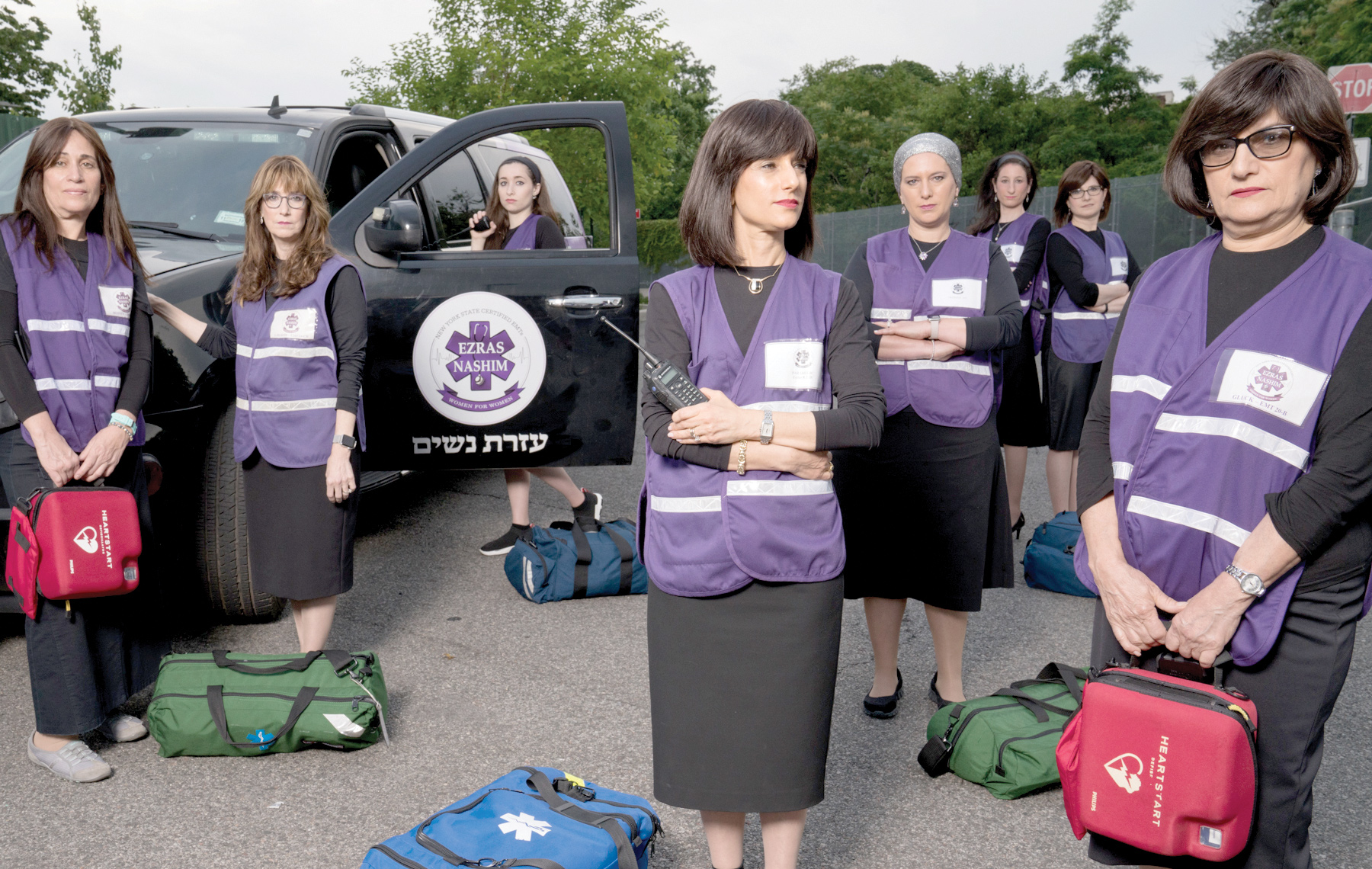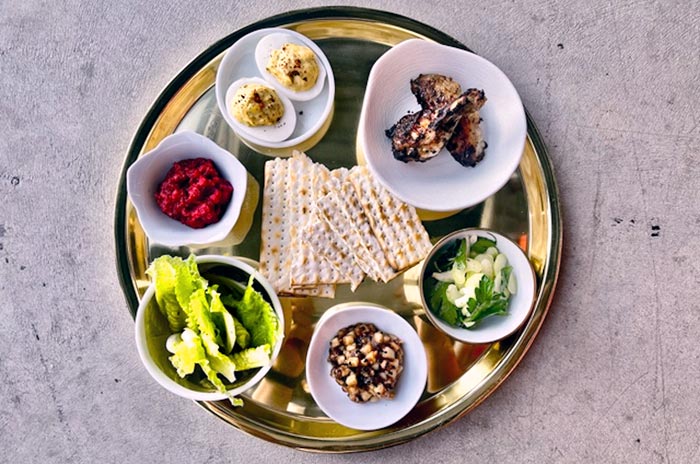
“93Queen” is a twist on the David vs. Goliath story: Both sides in the documentary are Jewish and “David” is a group of Chasidic women who stand up to the patriarchal establishment and triumph in the end.
Set in the Chasidic community in Borough Park, Brooklyn, the film follows the efforts of Rachel “Ruchie” Freier and others to establish Ezras Nashim (“women helping women”), the first all-female volunteer ambulance service in New York City. It’s an uphill battle as they face opposition from the powerful, politically connected, all-male Hatzolah — the largest volunteer ambulance corps in the world.
The idea behind Ezras Nashim was to provide an alternative for women unaccustomed to being touched by men other than their husbands. But instead of embracing it, Hatzolah tried to shut it down.
“I think it comes down to fear and politics. They’re so scared of any sort of change to the status quo,” filmmaker Paula Eiselt told the Journal. “The reason why I made the film was I’d never seen Chasidic women not take no for an answer. Hatzolah told them no. They said: Sorry, they were doing their own thing. That’s defiance.”
“I went to many rabbis who said, ‘This is a great thing you’re doing. This is a mitzvah and you should do it.’ But they wouldn’t give me a public endorsement because of the political climate,” Freier said. “Was I happy about it? No, but I understood it. My husband and I knew that this was something so important that I had to continue. The mitzvah of saving a life is not just for men, it’s for women too.”
Eiselt, a first-time feature director, read about Ezras Nashim online. She met with Freier in 2013, but it took a while to build her trust and convince her to participate.
“This is something that was so important that I had to continue. The mitzvah of saving a life is not just for men, it’s for women too.” — Rachel “Ruchie” Freier
Eiselt was raised modern Orthodox on Long Island, with relatives in the Borough Park community. “I had an understanding of how the Chasidic world works,” she said. “I told Ruchie, ‘I want to give you a voice. Women in the community are viewed as oppressed, subservient. There’s so much negativity out there about your community. You’re doing something amazing.’ Giving her the opportunity to have a platform, a voice to tell her story, is what sold her.”
Freier gave another reason for her participation. “The concept of sanctifying God’s name is really important to us as religious Jews, and Paula said the film would do that by showing Chasidic women to the outside world in a light that’s never been seen before, and that a positive result would come of it,” she said. “But without the rabbi’s approval, I wouldn’t have done it.”
Freier, a lawyer and certified paramedic in addition to being the matriarch of a large family, ran for civil court judge in Brooklyn’s 5th Municipal Court District during the making of the film. She became the first Chasidic woman to hold elected office in the U.S., and is now in the second year of a 10-year term. “[Chasidic] women have always been afraid to venture out into the secular world, but there’s no need to compromise your values,” she said. “There’s a feeling of ‘don’t put yourself up to be tested.’ I want people to know that times have changed.”
But as Eiselt pointed out, the pace of that change can seem glacial to outsiders. “Feminism looks different in different communities and takes on a different persona. It’s not one size fits all,” she said. “Looking back, I realize that this is the Chasidic version of the #Me Too movement, a steppingstone to it. [Ezras Nashim] is about dignity, healthcare, women’s choices. Ruchie’s goal was to give women a choice.”
Eiselt is aware that the documentary “inherently has controversy, and I’m sure there will be blowback. But not so far,” she said. “People are excited to see empowered Chasidic women and have been so incredibly inspired. But I’m sure the people who give Ruchie a hard time won’t like the film.”
“This is the first time you have a positive view of the Chasidic community,” Freier said, noting that other films about Charedim focus on people who have left and cast the community in a negative light.
Eiselt said her goal was to make a “nuanced film, but not sanitize it either. I want the audience to see these women as human beings and recognize that this is progress, a really groundbreaking moment within the Charedi community. I hope the themes of change from within and empowerment empower other women, especially religious women, to make change from within their communities because they’re the ones who can make progress.”
The New York University film school grad has several new projects in the works, one focusing on her Chasidic uncle and others “that have nothing to do with the Jewish or Charedi communities,” she said. “I’m passionate about all women’s rights, so my next project will likely have that theme.”
Laemmle Theatres and the L.A. Jewish Film Festival will present the Los Angeles premiere of “93Queen” on Aug. 14 at 7:30 p.m. featuring a Q&A with director Paula Eiselt and subject of the documentary Rachel “Ruchie” Freier. The film opens at Town Center 5 on Aug. 15 and Music Hall on Aug. 17. It will be shown on PBS’ “POV” on Sept. 14.





















 More news and opinions than at a Shabbat dinner, right in your inbox.
More news and opinions than at a Shabbat dinner, right in your inbox.